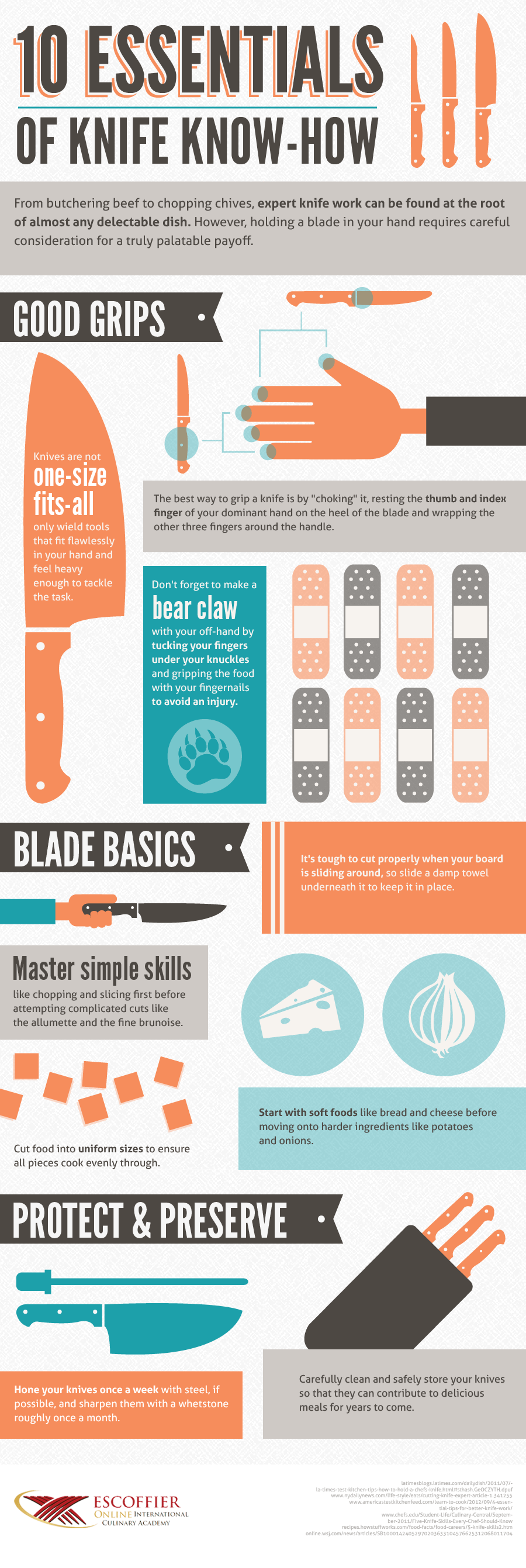Safety Tips For Using Knives In The Kitchen
The professional chefs you see slicing and dicing on the Food Network certainly didn’t acquire those skills overnight. Knives are just as important in cooking as the ingredients that you’re putting into your dish. Mastering the use of the knife can significantly enhance the flavor of your dishes, and will save you plenty of time in the kitchen as well. While proper talent is certainly required, safety also has to be a top priority, whether you’re a beginner chef or a professional. Here are a few tips to keep in mind as you develop your knife skills:
Control your food
Should you be chopping up a vegetable or fruit, it’s important to first cut it in half to create a flat surface. This way you won’t have to be fighting the food as it rolls toward and away from you.
Don’t attempt to multitask
Many homeowners now have a television in their kitchen. While this may be great for entertainment, you should never attempt to catch up on the news with a sharp knife in your hand. Try to prevent cuts in the kitchen. Even if you feel like you can dice with your eyes closed, it’s better for you to concentrate on the task at hand – the TV can wait.
Know what to do with a falling knife
It’s never a good idea to attempt to catch a knife if it’s falling. It’s better to have it damage your flooring than your hand.
Always put knives in their proper place
After you’re done dicing an onion or slicing through a pepper, it’s natural to just set down the knife and move on with your cooking. But you don’t want to leave any knives loose on the countertop – they can accidentally be pushed off, which is a safety hazard. They especially shouldn’t be left out if small children are within reach.


